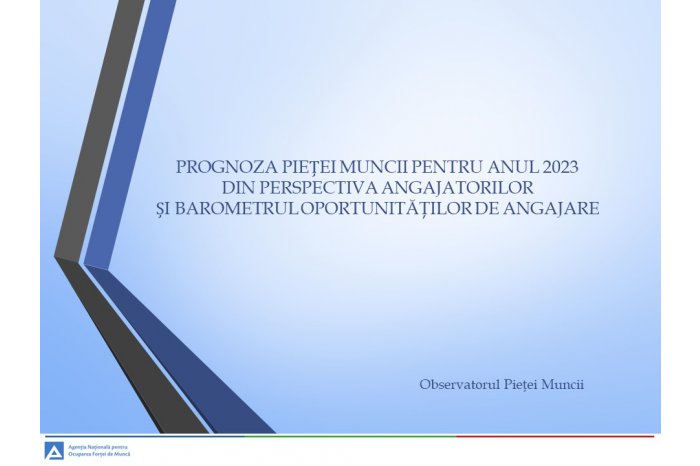Over 40 per cent of Moldova's enterprises set to invest in equipment, technologies, spaces
19:15 | 02.03.2023 Category: Economic
Chisinau, 2 March /MOLDPRES/ - Over 40 per cent of the enterprises from Moldova are set to invest in equipment, technologies and spaces and 10 per cent of the economic agents – in the creation of new jobs. Data to this effect is included in the labour market’s forecast for 2023 from the viewpoint of the employers and the barometer of the employment opportunities, worked out by the National Employment Agency (ANOFM).
The information was presented within the Labour Market Development working group of the Economic Council under the Prime Minister, led by President of the Chamber of Commerce and Industry (CCI) Sergiu Harea.
Thus, under the poll, 54 per cent of the respondents said that, despite the last year crises, the demand on the market for assets, products or services of companies did not undergo changes and 65 per cent of the economic agents say the situation stays without changes this year.
At the same time, the number of employees at the moment of questioning was 595,600 people, down by about 37,000 against the same period of the last year, which shows a continuous decrease in the labour force. Most employees are in the field of wholesale and retail trade – 17.4 per cent, public administration and defence – 16.9 per cent, processing industry – 15 per cent, followed by health and social assistance – 10 per cent. Also, the survey shows that a crisis of labour force is recorded on the labour market, so that, in 2022, about 10,000 vacant jobs could not be occupied.
Employers informed about a deficit of workers on more dimensions: 37 per cent show the lack of qualified staff with experience and 30 per cent declare a small number of applicants and impossibility to provide a proper salary. Also, 48 per cent of employers said more time had been needed to recruit staff or they were not able to recruit it.
The forecast of the labour market for this year was elaborated based on the findings of the questioning of 2,859 employers from diverse branches of the national economy, of whom 74 per cent were from the private sector, 19 per cent from the public one, and the biggest share belonged to micro- and small employers – 87 per cent.
Photo: ANOFM

